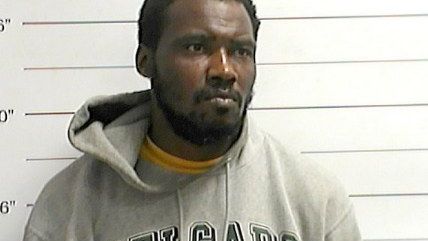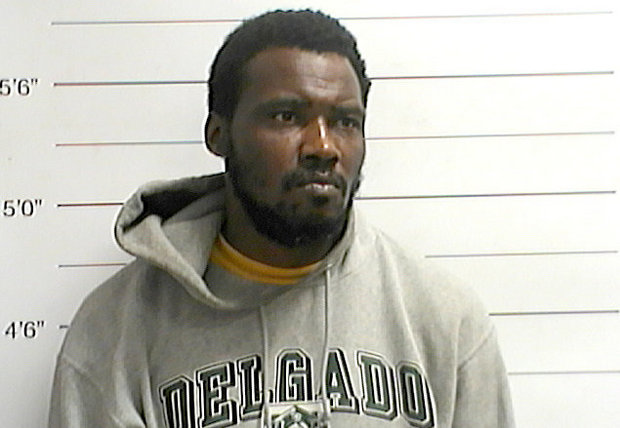New Orleans 0 for 2 in Applying 'Blue Lives Matter' Hate Crime Law
Police unsurprisingly want to punish speech against them.


It's too soon to predict whether the apparent "ambush-style" killings of two police officers in Des Moines, Iowa, will lead to more calls for tougher laws to punish people who target first responders in that state. Police are right now too focused on the hunt for the suspect (they captured him earlier this morning).
But 2016 has seen an increase in police shootings and several high-profile ambush-style killings of police. The Des Moines Register notes that these two officers are the first to be fatally shot in the line of duty in the city since 1977.
We do know that Louisiana passed a "Blue Lives Matter" law earlier in the year that was the first of its kind to add particular occupations to the state's hate crime sentence enhancement. If a person commits a felony against a police officer or an emergency responder on the basis of their occupation (or perceived occupation) the sentence for the crime may be enhanced in the same way it could be if a criminal were to target a person on the basis of their race or religion.
One does not have to be either a supporter or an opponent of hate crime laws to see how adding police as a protected category could go seriously astray. After all, they're the ones making the recommendations on what to charge suspects to prosecutors. Sure enough, the New Orleans Police Department have tried twice now to charge suspects with hate crimes against police simply based on the men saying things the police found disturbing.
I blogged about the first case in September. Police arrested a man for a drunken vandalism incident. During his arrest he shouted slurs at the police, and therefore police charged him with a hate crime. After the incident got media attention it became abundantly clear that the police had charged him because of "hate speech," not an actual hate crime. Police acknowledged that they had misapplied the law and last week prosecutors said they would not charge him under the hate crime statute.
Now there's another case of New Orleans Police not understanding what the law even means. A man called 911 and told the operator "he was going to shoot and kill any officer that responded to the call," according to police reports. While that's certainly a cause for concern, when police went to confront the man, Frenwick Randolph, he was apparently harmless. They detained him peacefully and found the phone he used to make the call and some marijuana.
Police then arrested the man for felony terrorizing with the hate crime enhancement specifically for threatening police. But according to The Times-Picayune, a magistrate commissioner rejected both the terrorist threat charge and the underlying hate crime charge, saying police failed to substantiate the charges. He instead ruled that the man could be jailed for criminal mischief. It's not over, though. The district attorney will still decide whether to formally charge the man with the hate crime enhancement.
A couple of commenters on the Times-Picayune story claim to know the suspect and said he was "off his meds."
Once again this is a crime enhancement based on what words the man said, not what he did. It's not an effort to use a sentencing boost to discourage a "trend" of crime targeting law enforcement, because there's little statistical evidence that such a trend exists. He obviously wasn't planning an "ambush," since he warned 911. The law is turning out to be a way for police or prosecutors to tack on more penalties (and for lawmakers to maintain the support of public sector unions).
These are not anomalies. This is how police are going to try to enforce the law. They don't see a difference between "hate speech" and "hate crimes," and frankly we have a real problem that the same can be said for many Americans now.
And, you know, maybe they're right, but not in the way they think. Hate crime law critics for years have argued that what these sentence enhancements actually do is punish people for abhorrent speech or opinions. If you beat somebody and call him an ethnic slur, that is something different and worthy of more punishment than if you beat somebody and say nothing.
So it's easy to see exactly why police are "misapplying" the law. These two men said bad things either to or about police while breaking the law. The intent of the law is to punish those who specifically target protected classes to victimize them with crimes. But how does one evaluate the motives? By what the suspects say or write or demonstrate when connected to the crime.
What the Blue Lives Matter law makes clear is that actually America does have laws against "hate speech," but they're limited in scope … so far. What the police are doing is demonstrating what a future would look like if Americans actually were to pass the kinds of hate speech laws we see in other countries. The fact that a state added government employees to the list of protected classes should serve as a dire warning that these laws should be resisted and rejected.


Show Comments (17)